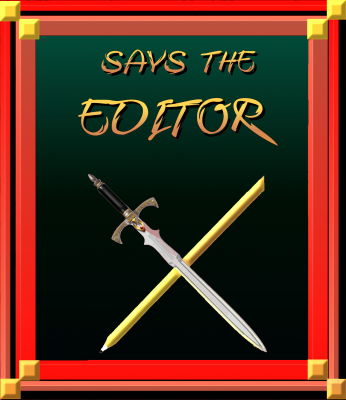May 26, 2022
 So… here’s an interesting one for you.
So… here’s an interesting one for you.
It’s from my own fiction, so I’m not bothering to change the line to protect the innocent. Let’s just let ‘er rip. (Also, if you want to know more about my own fiction, sign up for the newsletter, eh? Be sure to check the box for the author newsletter. And then stay tuned, because as soon as we have the new website and the book cover and the legal stuff worked out, we’re letting this project loose and I promise you’ve never seen a project like this one.)
Here’s the sentence:
It didn’t help that he still looked good, in a green collared shirt and tan dress pants—very expensive dress pants, she noted.
Pretty innocuous statement, no?
Here’s where it gets interesting: My proofreader, the amazing and wonderful April Hughes (so don’t you dare be thinking I’m picking on her or suggesting she’s not up to par because she totally is. I mean, hello? I PAY HER), suggested I cut the comma after good.
Except… this is where the comma changes the entire meaning.
Because without the comma, the sentence means that he looked good because of the clothes he’s wearing. His looking good is dependent on his clothes.
WITH the comma, the man just looks good, period, and the comma signals that we’re getting a description of his clothing.
Teeny tiny little bits of nuance… that even the best editors can’t catch for you.
WHAT? WHAT DID YOU JUST SAY, SUSAN????
Yep. This is one of those sentences, because of the twin meanings, that only the author can choose which message to send to the reader. They’re both grammatically correct. They both paint a vivid picture of the dude. The question is whether or not the dude needs his clothing to enhance his looks… and that’s something no editor can answer for you. All we can do is call it out and suggest the author take a closer look and consider the different messages the sentence is sending, with and without that comma.
For a little piece of punctuation, it’s sure got a lot of power.
Right, Grandma?*
Ahem.
If you’re one of those people who thinks you don’t need an editor, well, I can’t help you. But if you’re not, April and I would both love to work with you, and this isn’t the only project we’ve worked on together! I heartily recommend using one editor for different stages of editing, but most especially using a fresh set of eyes for that final look before you hit publish or submit to your agent/acquiring editor. Yes, it’s more expensive, but you’re worth it.
I promise.
*As in: Let’s eat, Grandma/Let’s eat Grandma
Leave a Reply